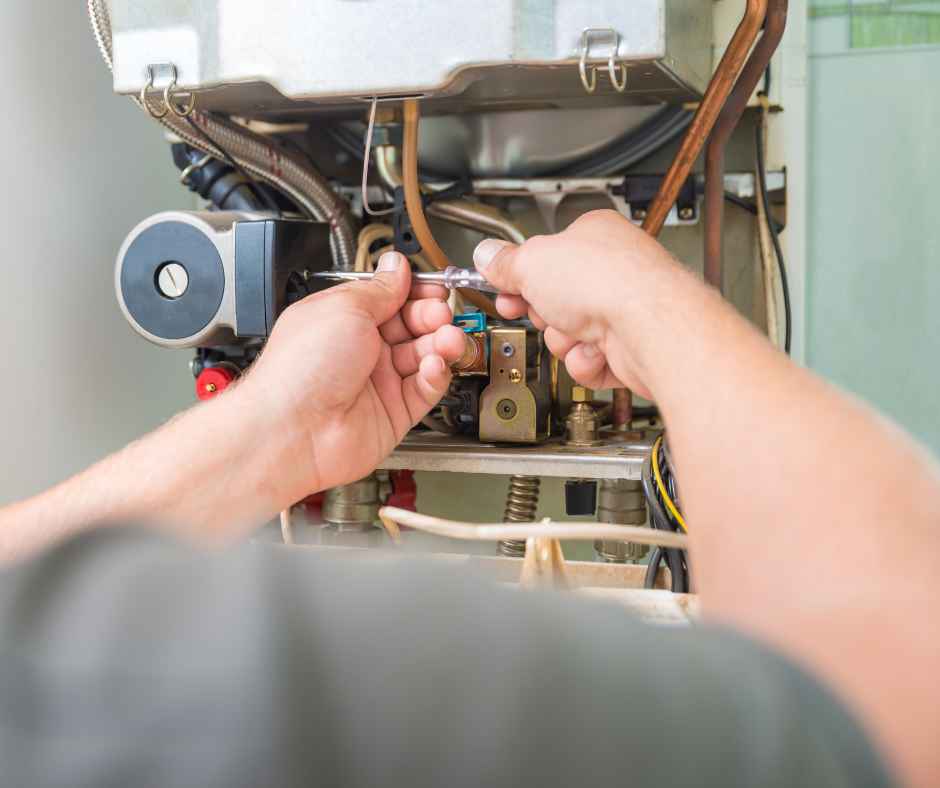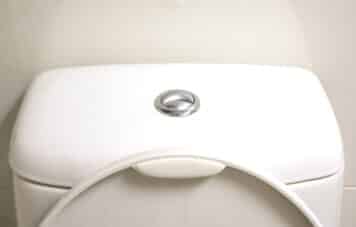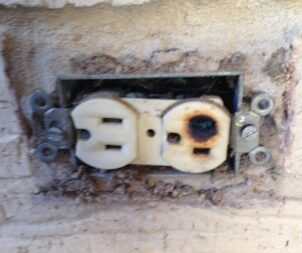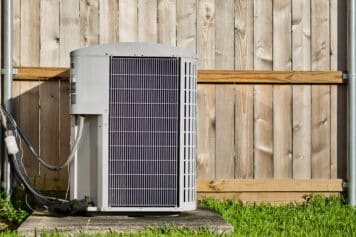
As temperatures start to drop across the Mid-Atlantic, homeowners know that winter weather can change quickly. From freezing winds and ice storms to damp coastal chill, the region’s unpredictable climate can put extra stress on heating systems. The best way to ensure your home stays warm and efficient all season long is to prepare your heating system before the harsh weather sets in.
Your heating system works hardest during the coldest months, and small issues that go unnoticed in the fall can turn into expensive breakdowns by midwinter. A little preparation now goes a long way toward preventing sudden heating failures, improving energy efficiency, and keeping your home safe and comfortable when temperatures drop.
In this blog, we’ll outline practical steps every homeowner can take to prepare their heating system for the season ahead.
Why Winter Preparation Matters for Mid-Atlantic Homes
The Mid-Atlantic region faces unique winter challenges. Homes in areas such as Maryland, Virginia, and Delaware experience cold snaps, high humidity, and occasional snow or ice. These conditions can make heating systems work harder than usual, especially when temperatures swing dramatically between mild and freezing.
Preparing your system before the first major cold front offers several benefits:
- Prevents unexpected breakdowns: Early maintenance helps identify worn parts or loose connections before they fail under heavy use.
- Improves energy efficiency: A tuned-up system heats more effectively and uses less energy, which helps lower utility bills throughout the winter.
- Enhances indoor comfort: Proper airflow and balanced temperatures prevent cold spots in your home.
- Extends equipment lifespan: Regular maintenance reduces stress on components and helps your heating system last longer.
Taking time to prepare also gives homeowners peace of mind. When the first deep freeze arrives, you can be confident your furnace or heat pump will perform reliably.
Inspecting and Cleaning Your Heating System
A thorough inspection and cleaning before winter are the foundation of reliable home heating. Dust, debris, and worn parts can cause uneven temperatures, strange noises, or reduced efficiency when your system starts working full-time. Taking care of these issues early ensures that your furnace or heat pump performs safely and effectively through the season.
What a Professional Inspection Includes
When you schedule a professional tune-up with Harris Plumbing, Heating & Air, technicians check every major part of your system to ensure optimal operation. A typical inspection includes:
- Examining burners and heat exchangers: Ensures safe combustion and proper heating output.
- Cleaning blower components: Removes dust and buildup that restrict airflow.
- Checking electrical connections: Tightens loose wires and verifies safe operation.
- Inspecting belts, motors, and bearings: Identifies wear that can lead to future breakdowns.
- Testing airflow and venting: Confirms that air is moving efficiently and safely throughout the home.
Why Cleaning Matters
Over time, dust, dirt, and pet hair collect inside your heating system and ducts. This buildup makes your system work harder, reduces indoor air quality, and raises your energy bills. Professional cleaning eliminates debris that can block airflow and helps prevent overheating or premature wear on components.
Even if your system appears to be running smoothly, an annual inspection and cleaning will help it perform more efficiently and last longer. Scheduling service in early fall gives you plenty of time to address any issues before harsh Mid-Atlantic weather arrives.
Replace or Clean Air Filters Regularly
One of the simplest yet most effective ways to prepare your heating system for winter is to replace or clean your air filters. A dirty or clogged filter restricts airflow, forcing your furnace or heat pump to work harder. This extra strain not only wastes energy but can also shorten the life of your equipment.
Why Filter Maintenance Is Essential
- Improves efficiency: Clean filters allow for better airflow, helping your system heat your home faster and use less energy.
- Protects components: Proper airflow prevents overheating, which can damage motors and other internal parts.
- Enhances indoor air quality: Fresh filters trap dust, pollen, and pet dander, reducing allergens in your home.
- Reduces utility bills: A clean filter helps maintain your system’s efficiency, keeping heating costs under control during the coldest months.
How Often to Replace Filters
The right replacement schedule depends on your home’s size, your system type, and your lifestyle. In general:
- Replace standard one-inch filters every 30 to 60 days.
- Check thicker or pleated filters every 90 days and replace them as needed.
- Homes with pets, allergies, or frequent system use may need more frequent replacement.
Set a monthly reminder on your phone or calendar to inspect your filters. Replacing them regularly is an inexpensive way to prevent many common heating problems before they start.
Check the Thermostat and Test the System Early
Before the first major temperature drop, it’s a good idea to test your heating system to ensure everything is working properly. Turning it on early allows you to catch small issues before they become emergencies during a cold snap.
Test the System Before Winter Hits
- Turn on the heat early: Run your furnace or heat pump for a few minutes on a mild day. Listen for unusual noises and check that warm air is flowing through your vents.
- Verify airflow: Make sure all vents and registers are open and free of obstructions such as furniture or rugs.
- Watch for unusual odors: A mild burning smell the first time you use your furnace is normal as dust burns off, but persistent odors should be inspected by a professional.
Check Thermostat Settings
Your thermostat controls how efficiently your system runs. Confirm that the temperature settings are accurate and that the system responds correctly when adjusted. If your home feels cooler or warmer than the displayed temperature, it may be time to recalibrate or replace the thermostat.
Consider a Smart Thermostat Upgrade
Modern programmable and smart thermostats make it easy to maintain comfort and control energy costs. Benefits include:
- Automatic scheduling: Adjusts heating settings based on your daily routine.
- Remote access: Control your home temperature through an app, even when you’re away.
- Energy tracking: Provides insight into your energy use and potential savings.
Checking your system early gives you peace of mind and ensures that your home stays warm and comfortable when Mid-Atlantic winter weather arrives.
Seal Leaks and Improve Home Insulation
Even the best heating system cannot perform efficiently if your home lets warm air escape. Drafts, gaps, and poor insulation can force your furnace or heat pump to work harder, leading to higher energy bills and uneven indoor temperatures. Addressing these issues before winter helps your heating system run smoothly and keeps your home more comfortable.
Identify and Seal Air Leaks
Small leaks around doors, windows, and ducts can waste a significant amount of heat. Checking for these problem areas is a simple but effective step in preparing for the season.
- Inspect windows and doors: Feel for drafts along edges and frames. Apply weatherstripping or caulk where needed.
- Seal ductwork: Leaky ducts can lose up to 30 percent of heated air. Seal gaps with mastic or foil tape and ensure joints are secure.
- Check the attic and basement: These areas often have the largest air leaks. Add insulation or seal gaps where pipes and wiring enter the home.
Improve Home Insulation
Proper insulation keeps warm air inside and cold air out. For many Mid-Atlantic homes, adding insulation is one of the most cost-effective ways to improve comfort and efficiency.
- Attic insulation: Heat rises, so the attic is often the best place to start.
- Wall insulation: Older homes may have limited wall insulation that allows heat loss.
- Pipe insulation: Wrapping exposed pipes prevents heat loss and protects against freezing temperatures.
The Impact of Proper Sealing and Insulation
- Reduces heating costs by preventing heat loss.
- Keeps indoor temperatures stable and more comfortable.
- Reduces system strain, extending the life of your furnace or heat pump.
By tightening your home’s thermal envelope, you help your heating system operate more efficiently and prevent unnecessary wear during harsh Mid-Atlantic winters.
Contact the Mid-Atlantic Heating Experts at Harris Plumbing, Heating & Air
Preparing your heating system before winter is the best way to avoid costly breakdowns and ensure steady comfort throughout the season. From inspecting components to sealing drafts and scheduling professional maintenance, every step you take now helps your system run more efficiently when cold weather hits.
For homeowners across the Mid-Atlantic, Harris Plumbing, Heating & Air is the trusted partner for reliable HVAC service. Their certified technicians understand how regional weather conditions affect heating performance and provide expert solutions that keep your home warm, efficient, and safe all winter long.
Whether you need a seasonal tune-up, a new system installation, or a quick repair, Harris Plumbing, Heating & Air delivers dependable service backed by experience and care.
Contact Harris Plumbing, Heating & Air today to schedule your winter heating maintenance or inspection. Their team is ready to help your home stay comfortable, efficient, and prepared for whatever the Mid-Atlantic winter brings.
Frequently Asked Questions About Preparing Your Heating System for Winter
When is the best time to schedule heating maintenance?
The best time to schedule heating maintenance is in early fall before temperatures drop. This ensures your system is fully inspected, cleaned, and ready before the first major cold spell hits.
How can I tell if my heating system needs professional attention?
If you notice uneven heating, strange noises, or rising energy bills, your system may be struggling. A professional tune-up can identify the cause and prevent the issue from becoming a costly repair.
What temperature should I set my thermostat to for efficiency?
During the winter, the U.S. Department of Energy recommends setting your thermostat to 68°F while you’re home and lowering it slightly when you’re asleep or away to save energy. Smart thermostats can automate these adjustments.
Can I do my own heating maintenance at home?
Homeowners can safely replace filters, clear vents, and check for drafts, but tasks involving gas, wiring, or internal components should always be left to a licensed HVAC technician for safety and reliability.
How often should I replace my furnace filter during winter?
Most filters should be replaced every one to three months, depending on the type of filter and your household conditions. Homes with pets or allergies may benefit from monthly replacements to maintain optimal airflow and indoor air quality.




